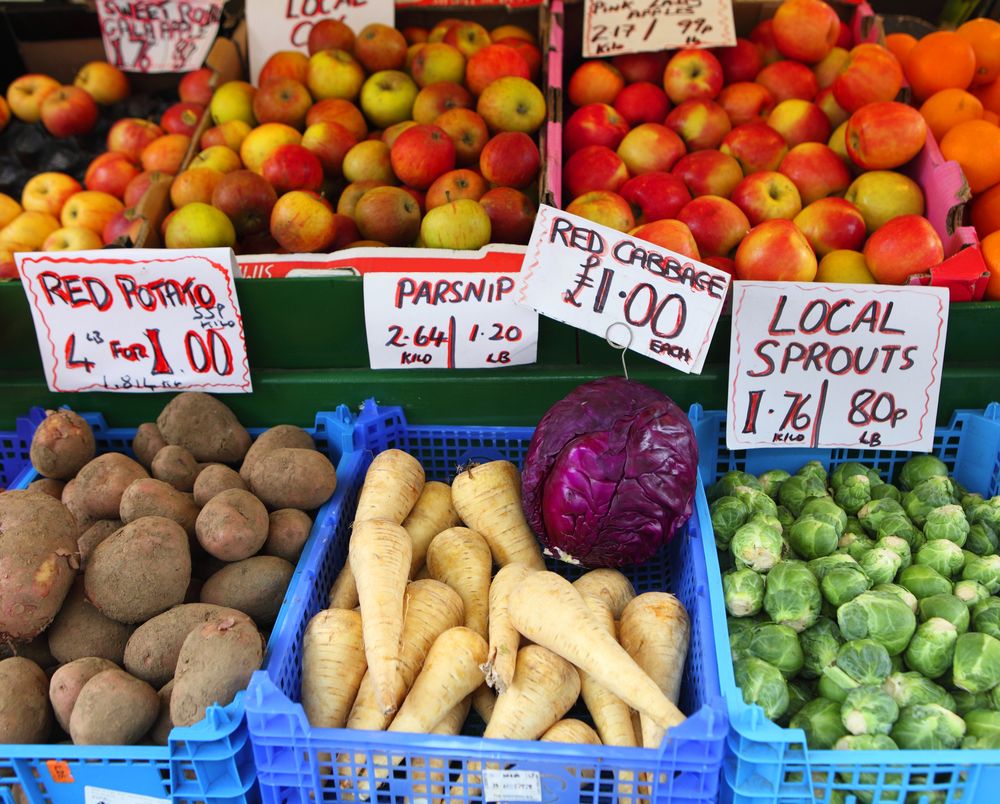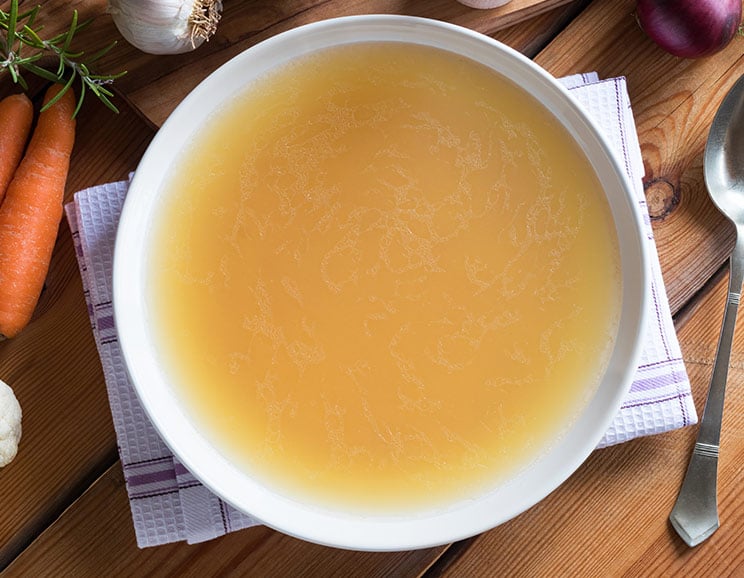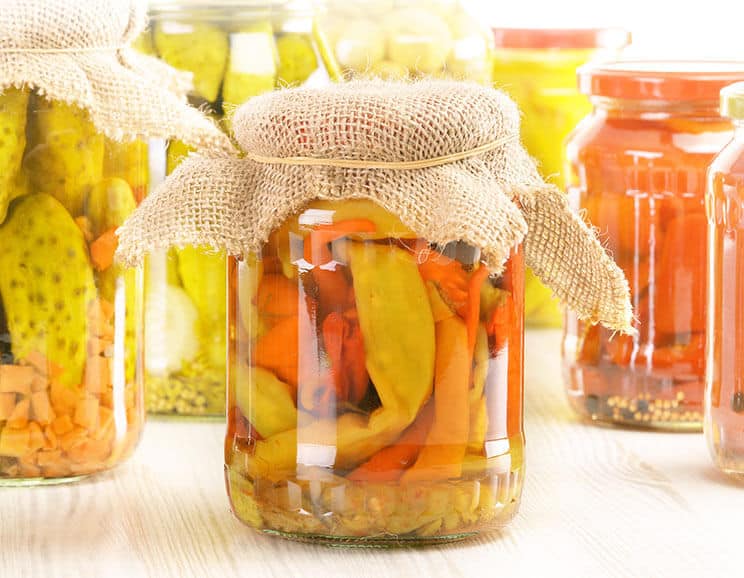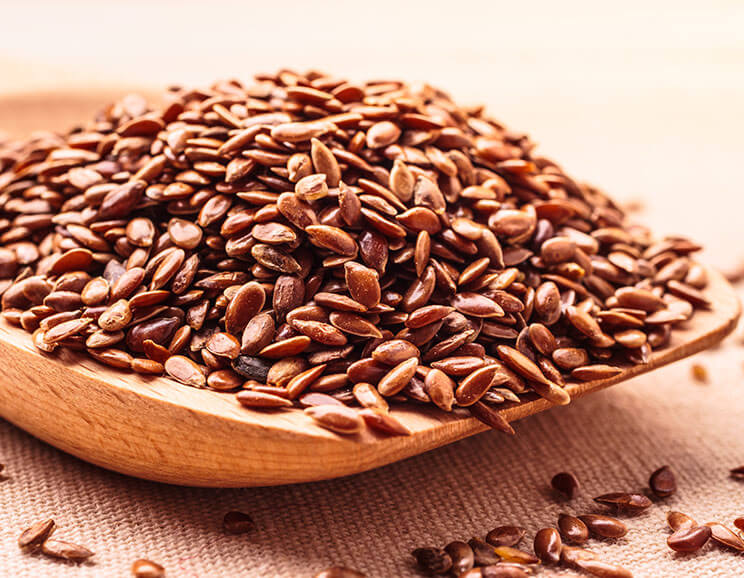Get to know the extraordinary benefits behind fermented foods, and discover the best fermented foods to add to your diet.
What Are Fermented Foods?
The process of fermented foods is pretty simple: they sit or “steep” until bacteria and yeast consume their natural sugars. This creates beneficial acids and “good” bacteria, which benefits your body when you eat it.
The fermentation process was originally used as a way to preserve foods. (1) The lactic and acetic acids created through the process make it difficult for bad bacteria to grow, which makes food last longer without refrigeration.
Do you struggle with bloating, gas, constipation, or other digestive issues? We’ve created a FREE guide to healing your gut naturally.
Click here to get your FREE copy of our Digestion Guide!
You’ve probably also noticed that fermented foods taste stronger than many foods, with a pungent or vinegar-like flavor. For example, you can taste the difference between a cup of fresh cabbage versus a bite of sauerkraut (fermented cabbage). This is the bacteria at work, changing the structure of the cabbage down to its flavor.
Benefits of Fermented Foods

The most profound benefit of fermented foods is their impact on the gut and digestion. This is because fermented foods contain an abundant amount of probiotics, which help colonize your gut.
However, recent research shows that the benefits of these cultured foods spans far beyond your stomach. Read on to see what other benefits fermented foods and their probiotics have to offer.
1. Improves Digestive Disorders
If you suffer from digestive issues, a bit of fermented food may go a long way. Studies show that probiotics help improve symptoms of ulcerative colitis, with one study finding that they were just as effective as prescription drugs at keeping symptoms in check. (2, 3)
Other studies show probiotics may also help improve irritable bowel syndrome and have also been able to reduce the risk of necrotizing enterocolitis (a fatal bowel condition in infants) by 50 percent. (4, 5)
2. Prevents Bad Bacteria Buildup
There are many things we do on a daily basis that can throw our gut bacteria out of balance, such as taking antibiotics and consuming artificial sweeteners. (6, 7) When bad bacteria begins to take over in our guts, we might experience a range of poor digestion symptoms, such as bloating and gas. (8)
Eating more fermented foods can help add more good bacteria to your gut to rebalance your microbiome and keep out bad bugs. (9)
3. Soothes Eczema
Studies show that the probiotics found in fermented foods can also benefit skin conditions like eczema. One study showed that women who took probiotics while pregnant had children who were 83 percent less likely to develop eczema. (10)
Another study found that infants fed probiotic-infused milk experienced an improvement in eczema symptoms, compared to those that were fed milk without probiotics. (11)
4. Sharpens Mental Health
Interestingly, probiotics can also improve mental conditions. A review of studies in both animals and humans found that adding probiotics to participants’ diets can improve depression, autism, memory, obsessive-compulsive disorder (OCD), and anxiety. (12) Probiotics can also help lower stress levels. (13)
5. Boosts Heart Health
Fermented foods can also help keep your heart pumping strong. Studies show that the probiotics prevalent in fermented foods help break down bile, which can enter back into your bloodstream as cholesterol when not properly broken down. (14)
Other studies show that probiotics can help increase good cholesterol and even reduce blood pressure. (15, 16)
6. Strengthens Immunity
The probiotics found in fermented foods may also help keep bad bugs away by boosting your immune system.
Our bodies produce natural antibodies and immune cells like killer T cells, which help identify and fight infections. Studies show that probiotics help produce these natural defenses, which may defeat colds and infections before they can catch hold. (17, 18)
7. Aids in Weight Loss
It turns out that eating more fermented foods may actually help you shed a few pounds.
One study showed that women who were dieting and took probiotics lost 50 percent more weight in three months than women who didn’t. (19) Others show that certain probiotics can also reduce belly fat, even at low doses. (20)
The Best Fermented Foods to Eat
Trust us: There’s more than just sauerkraut out there! Check out these other probiotic-rich fermented foods.
1. Kombucha

You can easily find some at your local grocery store, or you can make your own kombucha at home! Try drinking a serving a day for a dose of probiotics.
2. Sauerkraut
Sauerkraut is fermented cabbage that has traditionally been used in northern European cooking. It has a pungent, sometimes slightly sweet flavor that works great with meat dishes, and even stew.
Try this easy, healthy sauerkraut recipe and add a couple of spoonfuls to your dinner a few times a week.
3. Coconut Water Kefir
Kefir is traditionally a fermented milk beverage (like a drinkable yogurt). However, since we’re avoiding dairy here on the Paleo diet, it helps to know coconut water kefir exists, which is simply fermented coconut water.
Add a couple tablespoons to 1/4 cup of coconut kefir water to your diet a few times a week.
4. Non-Dairy Yogurt
Non-dairy yogurts made from ingredients like almond and coconut are great sources of probiotics and enzymes. Plus, they’re an easy way to get a healthy dose of good fats, and they make a great snack!
Try a non-dairy yogurt for breakfast topped with nuts, or have a cup as a snack. You can also try these homemade coconut yogurt bites!
5. Kimchi
Kimchi is similar to sauerkraut, but also contains other veggies, as well as spices and seasonings like garlic, ginger, pepper, and more.
Try this easy gut-healing kimchi recipe and use it to top a stir-fry or spice up a veggie dish.

The Bottom Line
Adding fermented foods to your diet can be a tasty, easy way to cash in on the wide range of benefits of probiotics. Add several of these to your diet weekly for best results.
Read This Next: How To Quick Pickle Any Veggie in Just 24 Hours!


 The Original Superfoods
The Original Superfoods








Show Comments